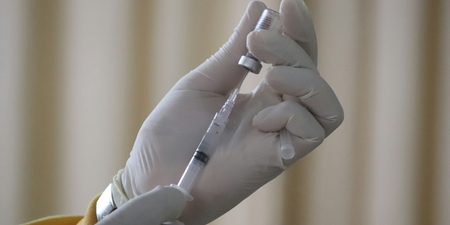“I took abortion pills in Ireland which didn’t work and then I was 13 weeks so my GP said I have to go to England.”
Just one in 10 GPs are providing abortion services in Ireland, a new report has shown.
The research, published by the National Women’s Council of Ireland (NWC), shows that less than 10% of GPs offer early medical abortion, with just over half of maternity hospitals providing abortion services to patients.
The report, entitled ‘Accessing Abortion in Ireland: Meeting the Needs of Every Woman’, details the multiple barriers to abortion services that still exist in Ireland, three years after the referendum to repeal the eighth amendment.
The NWC is calling for improved abortion care for women and pregnant people ahead of the government’s scheduled review of such services.
Previous research has shown that at least one patient a day is still traveling to the UK for abortion services not available in Ireland, with the majority of these being later term abortions.
Ireland currently allows for the termination of pregnancies under 12 weeks gestation (with cases of foetal abnormalities of those which pose a risk the the health of the mother allowing for later abortions), however the report suggests that there remain extra challenges for those seeking to terminate a pregnancy.
The report states: “As of April 2020, 373 GPs had signed contracts with the Heath Service Executive (HSE) to provide EMA (early medical abortion) and medical professionals who took part in this research suggest this has increased slightly to approximately 385 providers.
“The Irish College of General Practitioners (ICGP), estimates that 3496 GPs are actively practising in Ireland meaning that at present, just one in every ten GPs is an abortion care provider. It is also worth noting that due to the doctors’ availability and capacity to take additional patients, not all are available at any one time.”
Case studies provided by the Abortion Support Network (ASN) show that since the legalisation of abortion, many women are still being forced to travel to England and elsewhere for terminations. Challenges include the cost of travel, lack of support, and passport issues.
One case study reads: “I took abortion pills in Ireland which didn’t work and then I was 13 weeks so my GP said I have to go to England. The costs will be way more than I can afford so I was hoping you can help me. My passport expired so I have been waiting for the new one and I am now 16 weeks.”
Another reads: “I had a termination in Ireland and thought all had gone to plan, but then didn’t get my period. Now I am 20 weeks and they can’t do anything to help me. I have been in contact with BPAS clinic and have an appointment for a procedure which is going to cost €1700. This does not include the cost of flights or accommodation. I am in dire straits as I don’t have anything near that kind of money.”
The report also points to members of the Travelling community, asylum seekers and migrants, and people with disabilities as groups facing additional challenges when it comes to abortion and other healthcare services.
Migrant women in particular “experience multiple barriers to accessing care and are therefore disproportionately affected by obstacles such as the three day waiting period and the strict 12 week limit.
“An Irish address and PPS number is required by everyone seeking to access an abortion which results in barriers in treating asylum seekers and women temporarily resident in Ireland.”
According to the report, traveller women also experience barriers when accessing healthcare services in Ireland, particularly reproductive healthcare. Senator Eileen Flynn says she felt “undermined” attending a maternity hospital as a Traveller woman: “I wasn’t undermined by the midwives, I was undermined by the consultant, the one consultant. I didn’t have any choice or any say over anything.”
The NWC has called on the government to ensure adequate abortion services in every county, and urged that conscientious objection not be permitted as a barrier to access.
You can access the full report here.



















































